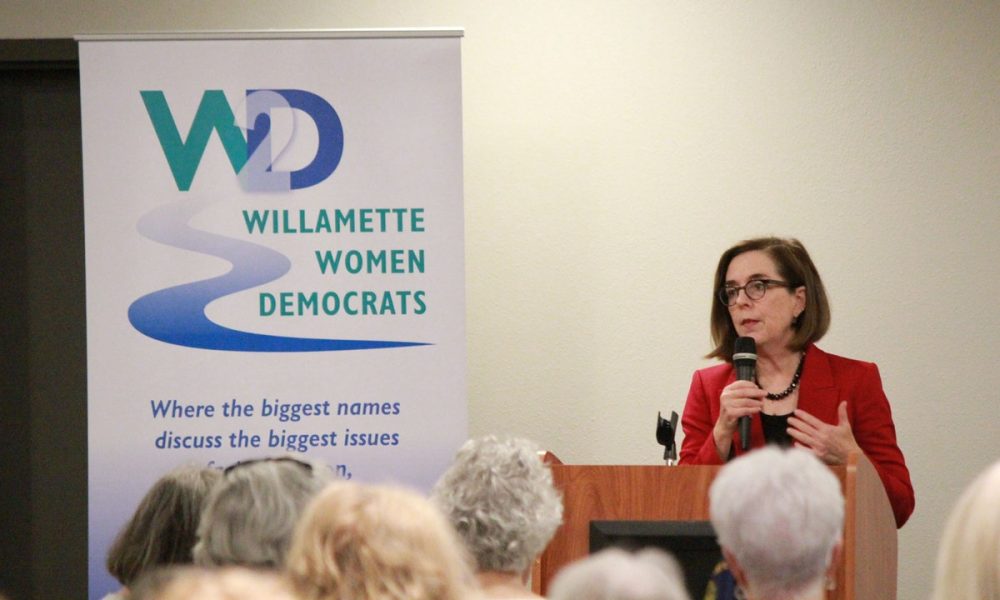
Gov. Kate Brown at a Willamette Women Democrats meeting Sept. 12 in Lake Oswego. (Sam Stites/Pamplin Media Group)
SALEM – Gov. Kate Brown will not call a special session to change a controversial bill limiting the state’s death penalty before the law takes effect on Sept. 29.
Senate Bill 1013, which lawmakers approved this year, changed when prosecutors can charge someone with aggravated murder — the only charge in Oregon for which the death penalty can be sought. During legislative hearings, lawmakers supporting the bill said it wouldn’t apply to old cases where defendants had already been sentenced. But, after the legislative session ended, the Oregon Department of Justice said the law could apply to people on Oregon’s death row who have been granted a new trial on appeal.
Brown said in late August that she would call a special session if lawmakers could round up support for a change to clarify the law. But by Wednesday evening, Sept. 18, it was apparent that there wasn’t enough support for that change, she said.
“While it is clear there is a misunderstanding regarding the intent of the words in Senate Bill 1013, it is also clear there is not sufficient support for a special session to pass a fix,” Brown said in a Sept. 18 statement, as lawmakers wrapped up three days of interim committee meetings at the Capitol. “When announcing my support for a special session, I said that it was conditional on stakeholders and legislators crafting bill language that had the votes to pass. That has not been achieved.
“I cannot justify the additional cost and time a special session requires without that support, and I will not be calling the legislature into a special session this month before the law goes into effect,” Brown said.
[ You are key to quality Salem news coverage – SUBSCRIBE today.]
Late last month, Sen. Floyd Prozanski, D-Eugene, said he sought a change to the law to have it apply only to offenses committed on or after Sept. 29, 2019, when the law takes effect. Reached after the governor’s announcement, Prozanski said that a special session to pass the tweak had support in the Senate, but not in the House.
“When we are faced with these type of situations, we look at it, we measure it, and then if we determine that something needs to be done, that we are willing to put politics to the side and actually finish and make certain that the policy we actually passed is actually interpreted the way we intended it to be,” Prozanski said of his colleagues in the Senate. “We were not willing to play the politics that apparently is being played in the House.”
Brown’s announcement was met with criticism from Republicans.
“I am disappointed the governor did not take the opportunity to call lawmakers into session to fix the bungled death penalty bill,” tweeted new House Republican Leader Christine Drazan. “This was a lost opportunity to protect victims’ families, achieve a bipartisan solution and uphold the will of the voters.”
Senate Republican Leader Herman Baertschiger Jr. of Grants Pass, claimed the bill “will inflict even more pain on the victims’ families who have already been horribly damaged and traumatized.”
“Their horrific experiences will be public again as the worst criminals are given the chance of parole,” Baertschiger said.
Advocacy groups like the American Civil Liberties Union of Oregon have opposed changes to Senate Bill 1013. The ACLU of Oregon has said that capital punishment is disproportionately applied to people of color, doesn’t deter people from crime. The group has also pointed to errors and biases in the criminal justice system that lead to innocent people getting convicted and sentenced to death across the country.
Reporter Claire Withycombe: [email protected] or 971-304-4148.









